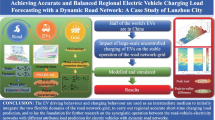Abstract
In this paper, we present an in-depth evaluation of two approaches of extending k-means clustering to work on first-order representations. The first-approach, k-medoids, selects its cluster center from the given set of instances, and is thus limited in its choice of centers. The second approach, k-prototypes, uses a heuristic prototype construction algorithm that is capable of generating new centers. The two approaches are empirically evaluated on a standard benchmark problem with respect to clustering quality and convergence. Results show that in this case indeed the k-medoids approach is a viable and fast alternative to existing agglomerative or top-down clustering approaches even for a small-scale dataset, while k-prototypes exhibited a number of deficiencies.
Preview
Unable to display preview. Download preview PDF.
Similar content being viewed by others
References
G. H. Ball and D. J. Hall. A clustering technique for summarizing multivariate data. Behavioral Science, 12:153–157, 1967.
G. Bisson. Conceptual Clustering in a First-Order Logic Representation. In B. Neumann, editor, Proceedings of the 10th European Conference on Artificial Intelligence, pages 458–462. John Wiley, 1992.
H. Blockeel, L. De Raedt, and J. Ramon. Top-down induction of clustering trees. In J. Shavlik, editor, Proceedings of the Fiteenth International Conference on Machine Learning (ICML-98), pages 55–63. Morgan Kaufmann, 1998.
D. Cox. Note on grouping. J. Am. Stat. Assoc., 52:543–547, 1957.
W. Emde. Inductive learning of characteristic concept descriptions from small sets to classified examples. In F. Bergadano and L. De Raedt, editors, Proceedings of the 7th European Conference on Machine Learning, volume 784 of Lecture Notes in Artificial Intelligence, pages 103–121. Springer-Verlag, 1994.
W. Emde and D. Wettschereck. Relational Instance-Based Learning. In L. Saitta, editor, Proceedings of the 13th International Conference on Machine Learning, pages 122–130. Morgan Kaufmann, 1996.
U. M. Fayyad, C. Rain, and P. S. Bradley. Initialization of iterative refinement clustering algorithms. In R. Agrawal, P. E. Stolorz, and G. Piatetsk-Shapiro, editors, Proceedings of the Fourth International Conference on Knowledge Discovery and Data Mining (KDD-98), pages 194–198. AAAI Press, 1998.
S. K. Gupta, K. Sambasiva Rao, and V. Bhatnagar. K-means Clustering Algorithm for Categorical Attributes. In M. K. Mohania and A. Min Tjoa, editors, Proceedings of the First International Conference on Data Warehousing and Knowledge Discovery (DaWaK-99), volume 1676 of Lecture Notes in Computer Science, pages 203–208. Springer-Verlag, 1999.
T. Horvàth, S. Wrobel, and U. Bohnebeck. Relational instance-based learning with lists and terms. Machine Learning (to appear).
T. Horvàth, S. Wrobel, and U. Bohnebeck. Term comparisons in first-order similarity measures. In D. Page, editor, Proceedings of the 8th International Conference on Inductive Logic Programming, volume 1446 of LNAI, pages 65–79. Springer-Verlag, 1998.
Z. Huang. Extensions to the k-means algorithm for clustering large data sets with categorical values. Data Mining and Knowledge Discovery, 2(3):283–304, 1998.
A. Hutchinson. Metrics on Terms and Clauses. In M. Someren and G. Widmer, editors, Proceedings of the 9th European Conference on Machine Learning, volume 1224 of LNAI, pages 138–145. Springer-Verlag, 1997.
L. Kaufmann and P. J. Rousseeuw. Clustering by means of medoids. In Y. Dodge, editor, Statistical Data Analysis based on the L1 Norm, pages 405-416. Elsevier Science Publishers, 1987.
L. Kaufmann and P. J. Rousseeuw. Finding Groups in Data: an Introduction to Cluster Analysis. John Wiley, 1990.
M. Kirsten and S. Wrobel. Relational distance-based clustering. In D. Page, editor, Proceedings of the 8th International Conference on Inductive Logic Programming, volume 1446 of LNAI, pages 261–270. Springer-Verlag, 1998.
J. McQueen. Some methods of classification and analysis of multivariate observations. In L. K. Le Cam and J. Neyman, editors, Proceedings of Fifth Berkeley Symposium on Mathematical Statistics and Probability, pages 281–293, 1967.
S. Muggleton. Inverse entailment and Progol. New Generation Computing, 13:245–286, 1995.
S.-H. Nienhuys-Cheng. Distance Between Herbrand Interpretations: A Measure for Approximations to a Target Concept. In N. Lavrač and S. Džeroski, editors, Proceedings of the 7th International Workshop on Inductive Logic Programming, volume 1297 of LNAI, pages 213–226. Springer-Verlag, 1997.
G. Plotkin. A note on inductive generalization. In Machine Intelligence, volume 5, pages 153–163. Edinburgh University Press, 1970.
J. Quinlan and R. Cameron-Jones. FOIL: A midterm report. In P. Brazdil, editor, Proceedings of the 6th European Conference on Machine Learning, volume 667 of Lecture Notes in Artificial Intelligence, pages 3–20. Springer-Verlag, 1993.
J. Ramon and M. Bruynooghe. A framework for defining distances between firstorder logic objects. In D. Page, editor, Proceedings of the 8th International Conference on Inductive Logic Programming, volume 1446 of Lecture Notes in Artificial Intelligence, pages 271–280. Springer-Verlag, 1998.
M. Sebag. Distance induction in first order logic. In N. Lavrač and S. Džeroski, editors, Proceedings of the 7th International Workshop on Inductive Logic Programming, LNAI, pages 264–272. Springer-Verlag, 1997.
A. Srinivasan, S. Muggleton, and R. King. Comparing the use of background knowledge by inductive logic programming systems. In L. De Raedt, editor, Proceedings of the 5th International Workshop on Inductive Logic Programming, pages 199–230. Department of Computer Science, Katholieke Universiteit Leuven, 1995.
A. Srinivasan, S. Muggleton, M. Sternberg, and R. King. Theories for mutagenicity: a study in first-order and feature-based induction. Artificial Intelligence, 85:277–299, 1996.
Author information
Authors and Affiliations
Editor information
Editors and Affiliations
Rights and permissions
Copyright information
© 2000 Springer-Verlag Berlin Heidelberg
About this paper
Cite this paper
Kirsten, M., Wrobel, S. (2000). Extending K-Means Clustering to First-Order Representations. In: Cussens, J., Frisch, A. (eds) Inductive Logic Programming. ILP 2000. Lecture Notes in Computer Science(), vol 1866. Springer, Berlin, Heidelberg. https://doi.org/10.1007/3-540-44960-4_7
Download citation
DOI: https://doi.org/10.1007/3-540-44960-4_7
Published:
Publisher Name: Springer, Berlin, Heidelberg
Print ISBN: 978-3-540-67795-6
Online ISBN: 978-3-540-44960-7
eBook Packages: Springer Book Archive




